 Some people just can't handle any excitement. 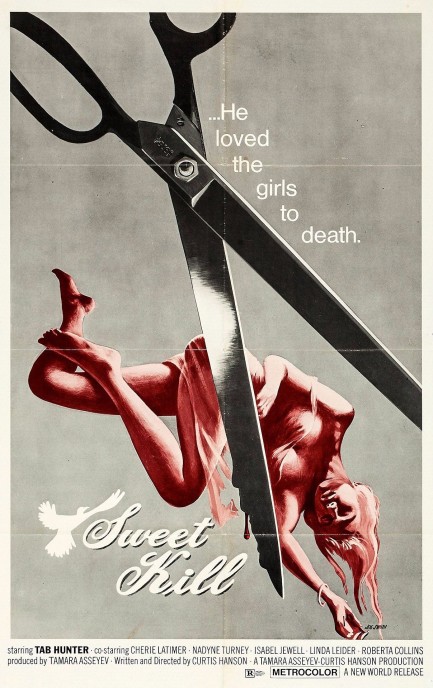
It's hard to believe that Curtis Hanson—the man who directed The River Wild, the acclaimed L.A. Confidential, and the underrated Wonder Boys, got his start with Sweet Kill, which he directed and wrote, but it's true. Everyone has to start somewhere. Even Francis Ford Coppola started in nudie flicks. Sweet Kill stars Tab Hunter, who plays a sort of beach hunk version of Norman Bates who stabs women when he's sexually aroused—hence the movie's alternate title, The Arousers. Those arousers, who you'll see below in a series of production photos made for the film, include Roberta Collins. Cherie Latimer, Brandy Herred, and others.
Sweet Kill is an interesting mood piece but we can't call the movie a success on the whole because it isn't scary—an aspiration for slasher flicks (its main inspiration Psycho is scary, after all). The main problem here is the acting, that bugaboo of ambitious young directors the world over. Collins is okay, but Hunter is out of his depth, and the other participants clearly didn't have the time and talent to hone their performances. In the end what you get is a lot of standing around, a fair amount of nudity, and minor tension derived from whether Hunter can somehow curb his murderous urges. Spoiler alert: he can't. Sweet Kill premiered in the U.S. today in 1972.
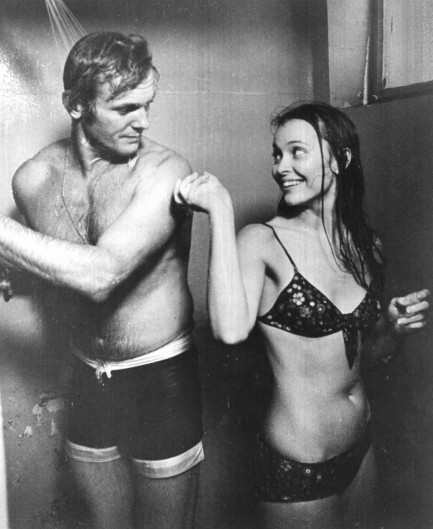 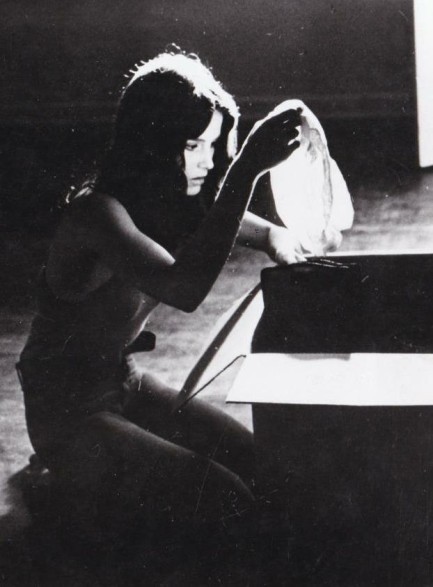 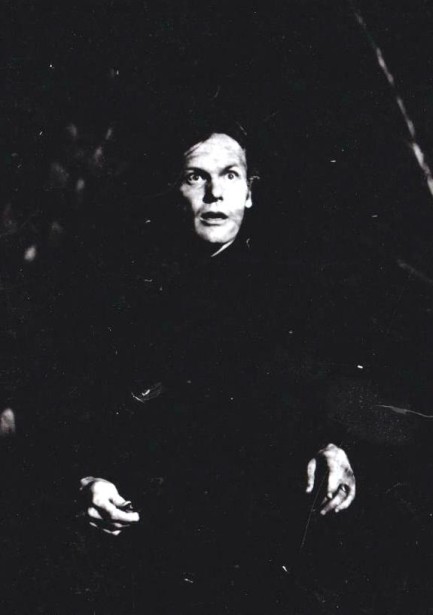 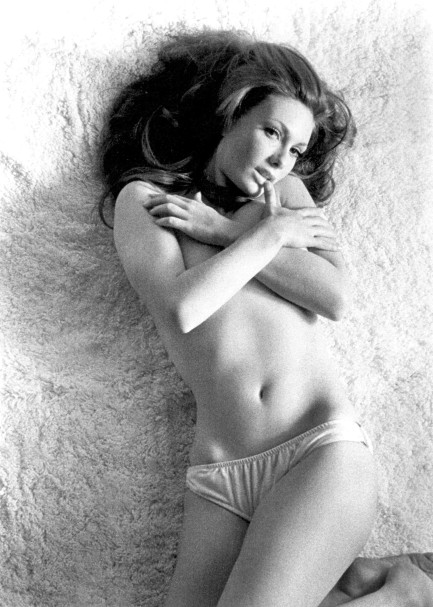 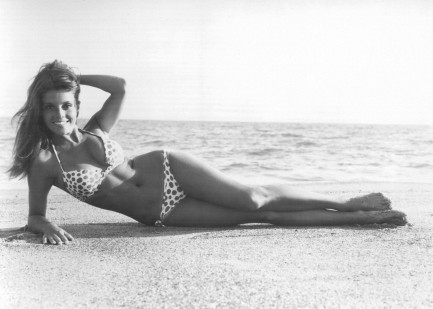 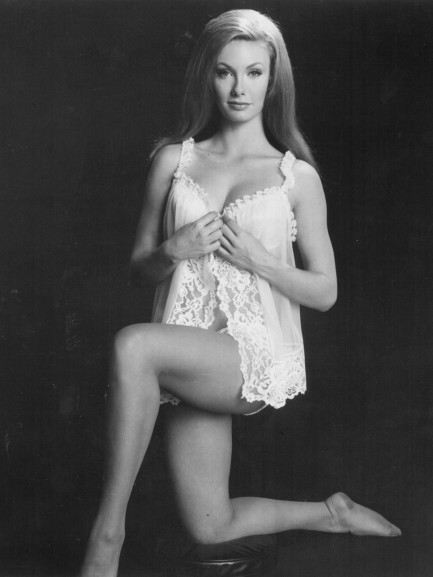 
 Happiness in Hollywood can be hard to hold onto. 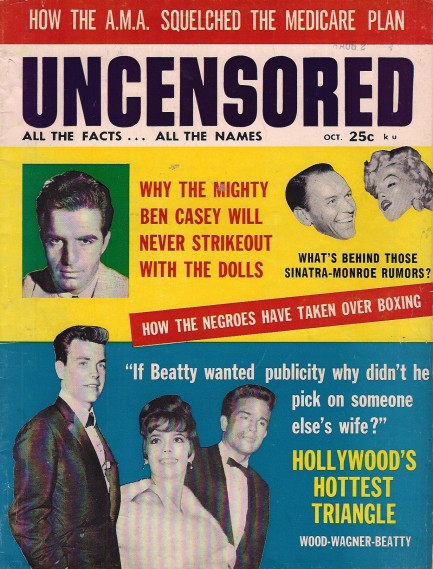
Uncensored gives readers the lowdown on all the Hollywood trysts and splits in this issue published this month in 1962. José Ferrer and Rosemary Clooney apparently broke up—after eight years and five children—over Ferrer's insistence on carrying on extramarital affairs, as was his natural right. At least that's what he thought: “Since the beginning of our marriage he has engaged in a series of affairs with other women,” Clooney is quoted. “I discussed this with him prior to our separation, but he said he couldn't change his way of life.” Apparently the Puerto Rican born Ferrer was old school with the whole machismo thing. But all was not lost between him and Clooney. They married again in 1964 and managed to stay together another three years.
Pivoting to the hook-ups, Uncensored explains how Joan Collins stole hotel heir Nicky Hilton from Natalie Wood, but Robert Wagner stole Collins from Hilton, leading to Natalie Wood stealing Wagner from Collins, and Collins falling into the arms of Warren Beatty. Mixed in with those four are James Dean, Tab Hunter, Lance Reventlow, and Elvis Presley. Or so the magazine says. That's a lot of guys and only two women, but the old tabloids loved to slut shame women while either ignoring or approving the antics of men. For example, Beatty was already known in 1962, after some years in television and with two hit movies behind him, as a fuckboy, but that's not mentioned here at all. These days, though, that immunity is largely gone. Although you'd have to have the brain of a fourteen-year-old to believe—as many people do—that he's slept with 12,000 women.
Uncensored next gets to Marilyn Monroe and Frank Sinatra. It's since been established that the two hooked up, but at the time this magazine was published the pair were generating mere rumors. Why? Because Monroe was flying to Las Vegas regularly and staying in Sinatra's home there. There's no rationale needed for this pairing—beautiful people tend to get together. But the editors actually offer a rationale for Monroe's interest in Sinatra and it's simply amazing: “Monroe is having all kinds of troubles with her studio and would like a man around the house to fight her battles for her.” Huh? That one makes no sense to us. Let's run it through our trusty Mid-Century Tabloid Filter™: Buzz...whirrrr... clickety click... Aha. What Uncensored means is Monroe was so emotionally fragile she had to have a guy around 24/7 to handle angry phone calls. Interesting, but we're still not buying it. Twenty scans below. 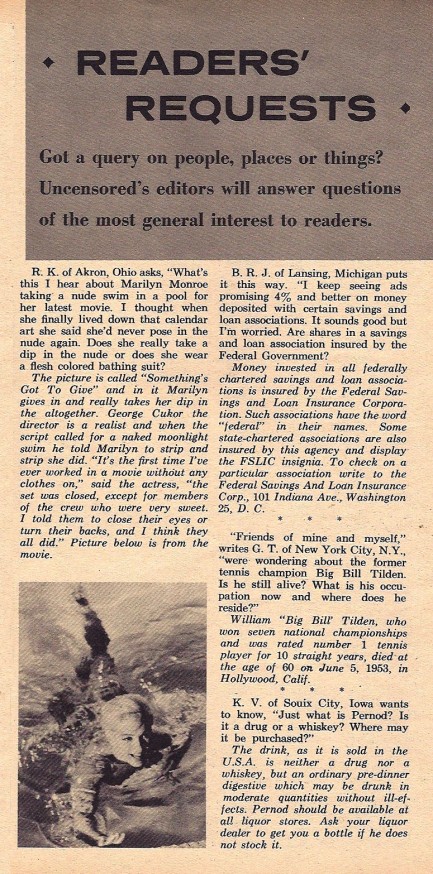 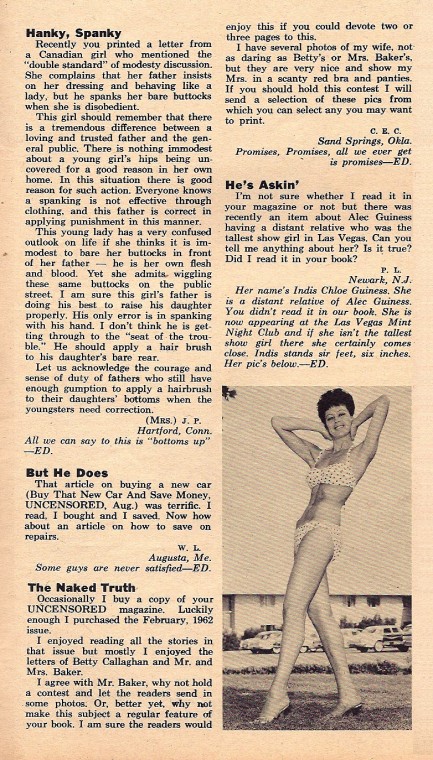 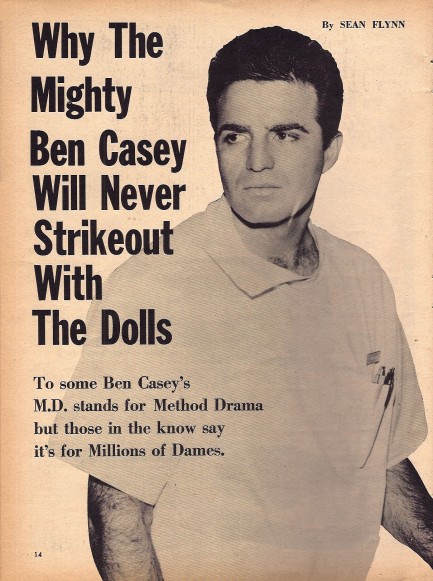 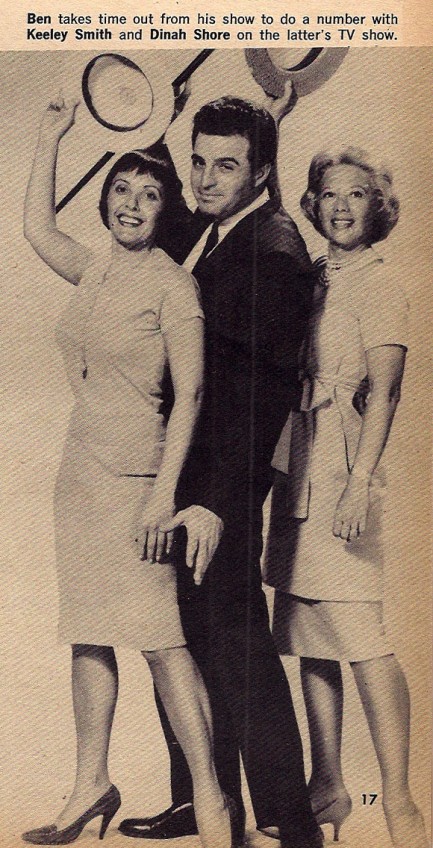 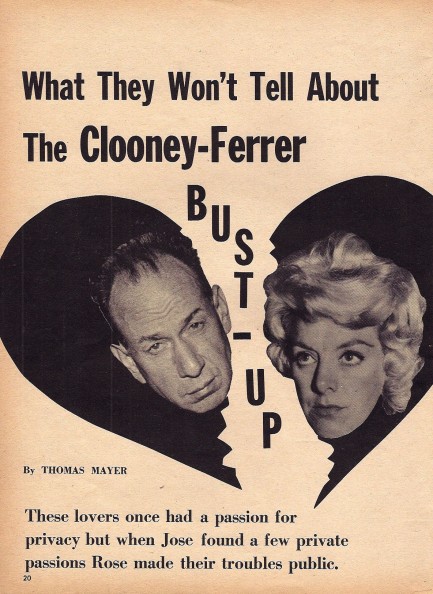 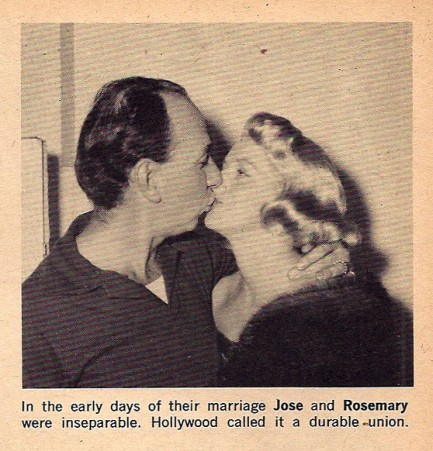 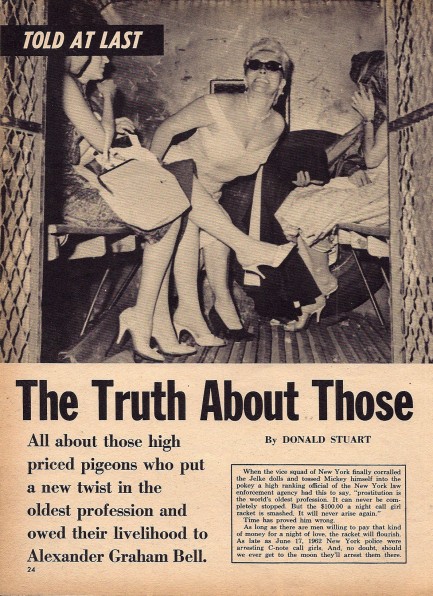 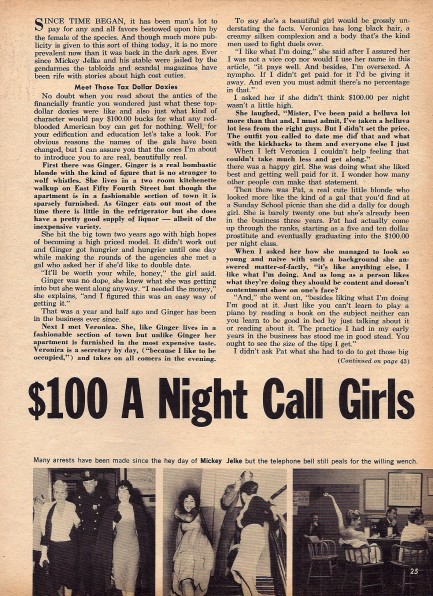 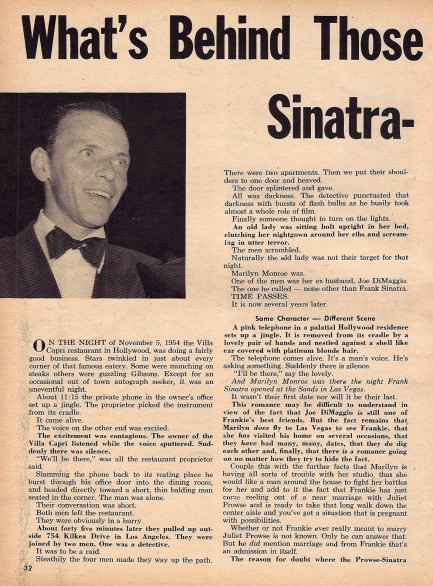 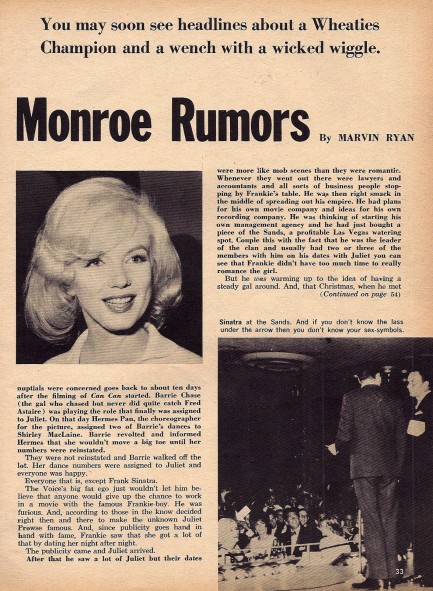 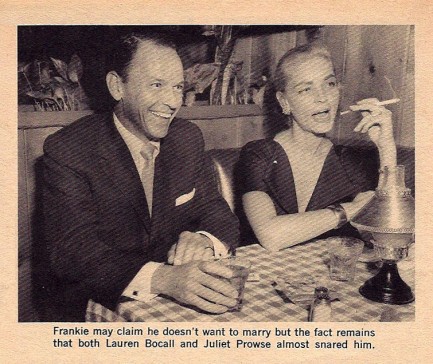  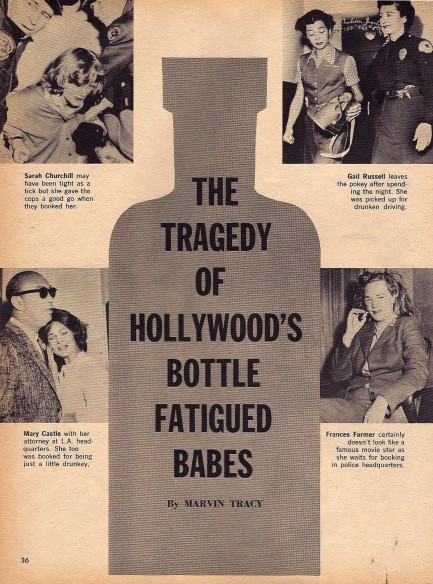 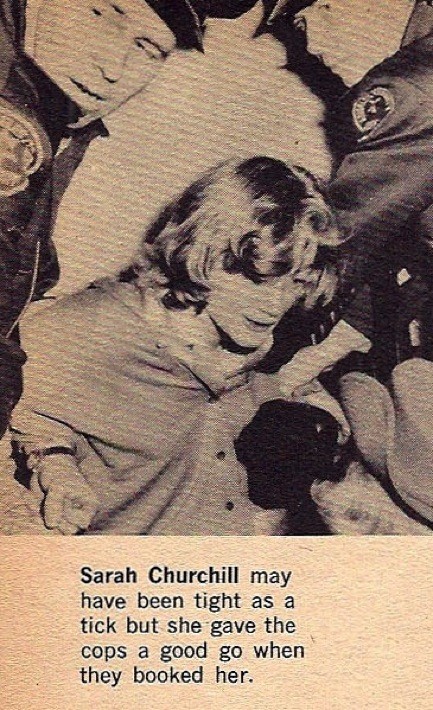 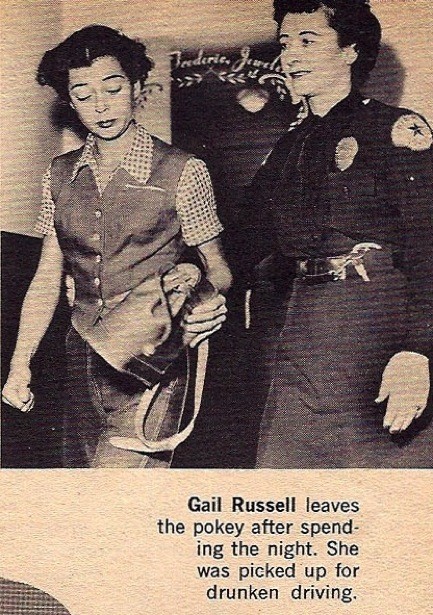 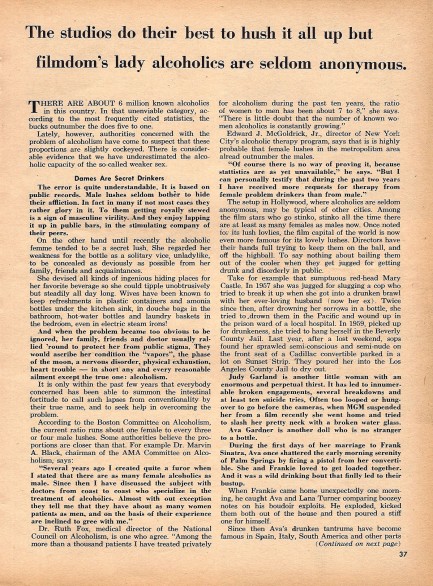 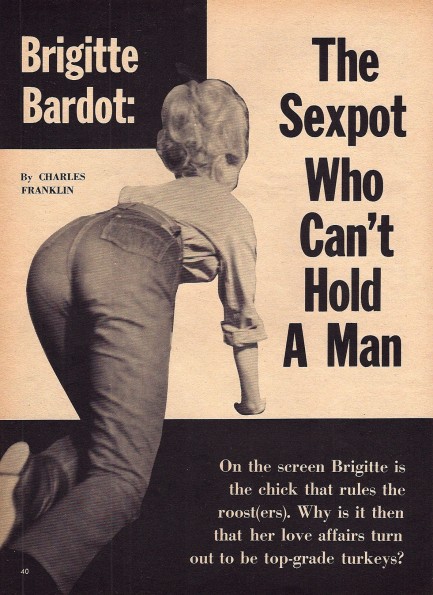 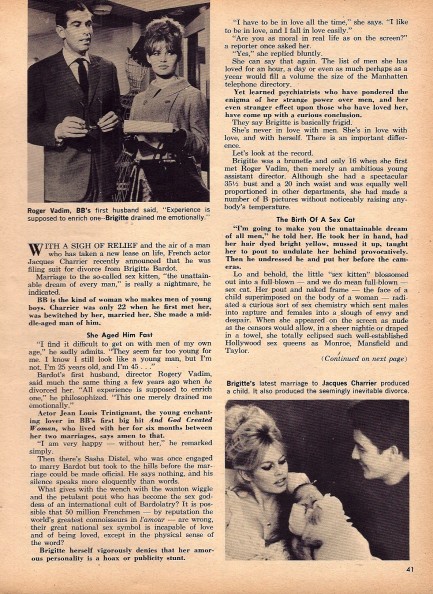 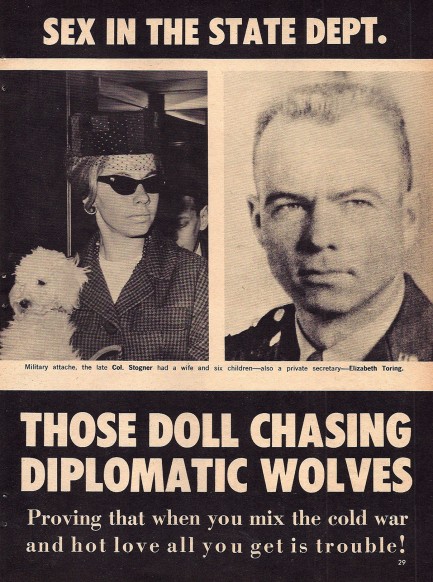 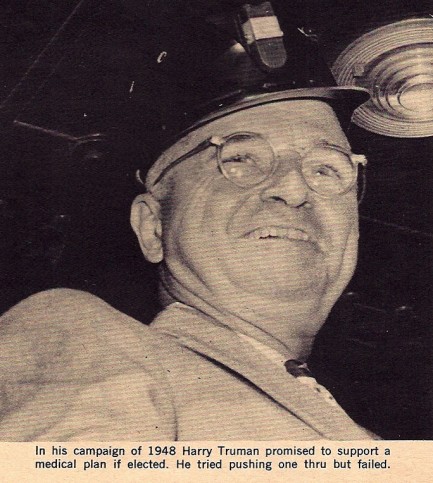
 Rudolph Nureyev’s defection from the Soviet Union fascinated the world—and changed his life forever. 
One of the more interesting pulp events of the 1960s occurred when a little-known ballet dancer named Rudolph Nureyev broke away from two Russian guards at Le Bourget airport in Paris and dashed through a security station shouting in English, “I want to be free!” His sprint into Western arms made him internationally known, rocked the dance world, and strained relations between the Soviet Union and France. It was one of the first high-profile defections, and the inside story had all the pulp elements we love best—secret romance, political intrigue, lots of headlines, and a fascinating personality at the heart of it all. For three weeks prior Nureyev had been performing in Paris with his troupe, the Leningrad Kirov Ballet, and in his off hours enjoying the City of Light with society friends. News of these associations had filtered back to Moscow and, concerned, Soviet authorities decided to summon Nureyev back to the motherland for a chat. For two weeks they had trying to get him sent home, but Kirov directors and the Soviet embassy in Paris had been deliberately unhelpful. Finally, on the day the Kirov was supposed to board a flight to London for the next leg of their tour, two Soviet security guards intercepted Nureyev and told him he was wanted in Moscow. His dash for freedom minutes later set off a chain of events that would end with him receiving asylum in France. Most assumed Nureyev had been thinking of defection for quite a while, but Soviet records declassified in the late 90s suggest he planned to return home. There were rumors he had fallen in love with a beautiful Chilean heiress named Clara Saint—in fact, this story was reported in much of the Western press—but in reality Nureyev was gay and had been seriously involved with a male dancer from Leningrad named Taja Kremke. It was Kremke who convinced Nureyev his talent would never flourish in the Soviet Union, but still, left to continue his tour with the Kirov, Nureyev likely would have flown home at its completion. Despite his general unhappiness, it seems to be the actual arrival of the security guards that triggered his defection. When the guards appeared he immediately knew he was in deep trouble and feared returning to Moscow meant he would not be allowed to dance anymore. News of the defection broke huge. The West gleefully used it deride the Soviets, who had been riding high on the triumph of sending the first human into space two months earlier. Soon the Clara Saint story began to be widely reported. But it soon became obvious neither politics nor love had been the primary trigger of the event, but a burning desire to dance and live unhindered. Nureyev got his wish—residing in the West he expanded his dance repertoire and acted in motion pictures. He also took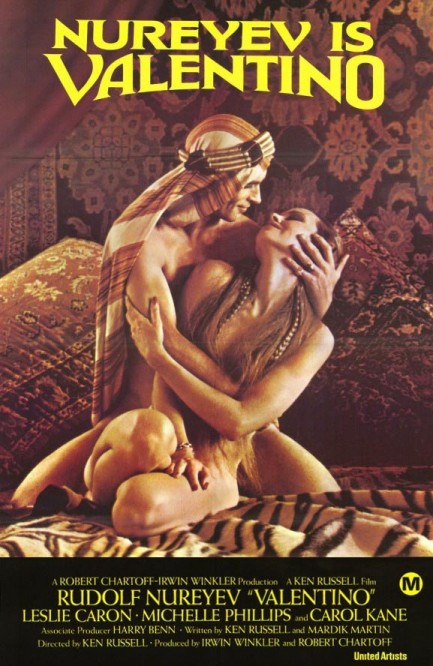 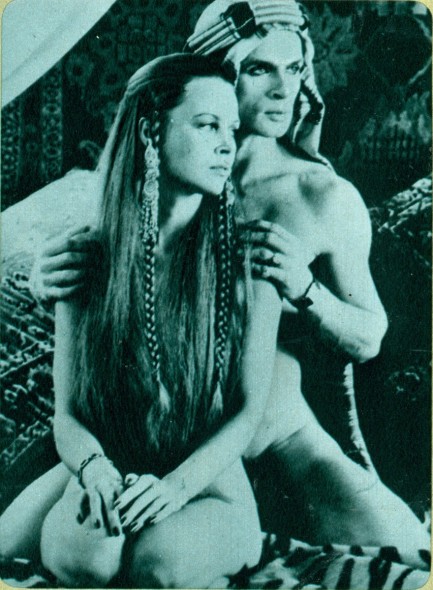 advantage of his more permissive surroundings by pursuing relationships with famous men such as Tab Hunter, Eric Bruhn, and Anthony Perkins, and by posing for a very famous set of nude photos exposing his celebrated endowment. But he lost almost as much as he gained—he was completely cut off from his family back in Russia, and didn’t see his mother again until she was dying. Nureyev himself began to die from AIDS around 1990, and finally succumbed January 6, 1993. He was perhaps the greatest ballet dancer of the twentieth century, and the event that forever changed his life happened today in 1961. advantage of his more permissive surroundings by pursuing relationships with famous men such as Tab Hunter, Eric Bruhn, and Anthony Perkins, and by posing for a very famous set of nude photos exposing his celebrated endowment. But he lost almost as much as he gained—he was completely cut off from his family back in Russia, and didn’t see his mother again until she was dying. Nureyev himself began to die from AIDS around 1990, and finally succumbed January 6, 1993. He was perhaps the greatest ballet dancer of the twentieth century, and the event that forever changed his life happened today in 1961.
|
 |

The headlines that mattered yesteryear.
2003—Hope Dies
Film legend Bob Hope dies of pneumonia two months after celebrating his 100th birthday. 1945—Churchill Given the Sack
In spite of admiring Winston Churchill as a great wartime leader, Britons elect
Clement Attlee the nation's new prime minister in a sweeping victory for the Labour Party over the Conservatives. 1952—Evita Peron Dies
Eva Duarte de Peron, aka Evita, wife of the president of the Argentine Republic, dies from cancer at age 33. Evita had brought the working classes into a position of political power never witnessed before, but was hated by the nation's powerful military class. She is lain to rest in Milan, Italy in a secret grave under a nun's name, but is eventually returned to Argentina for reburial beside her husband in 1974. 1943—Mussolini Calls It Quits
Italian dictator Benito Mussolini steps down as head of the armed forces and the government. It soon becomes clear that Il Duce did not relinquish power voluntarily, but was forced to resign after former Fascist colleagues turned against him. He is later installed by Germany as leader of the Italian Social Republic in the north of the country, but is killed by partisans in 1945.
|

|
|

It's easy. We have an uploader that makes it a snap. Use it to submit your art, text, header, and subhead. Your post can be funny, serious, or anything in between, as long as it's vintage pulp. You'll get a byline and experience the fleeting pride of free authorship. We'll edit your post for typos, but the rest is up to you. Click here to give us your best shot.

|
|


































 advantage of his more permissive surroundings by pursuing relationships with famous men such as Tab Hunter, Eric Bruhn, and Anthony Perkins, and by posing for a very famous set of nude photos exposing his celebrated endowment. But he lost almost as much as he gained—he was completely cut off from his family back in Russia, and didn’t see his mother again until she was dying. Nureyev himself began to die from AIDS around 1990, and finally succumbed January 6, 1993. He was perhaps the greatest ballet dancer of the twentieth century, and the event that forever changed his life happened today in 1961.
advantage of his more permissive surroundings by pursuing relationships with famous men such as Tab Hunter, Eric Bruhn, and Anthony Perkins, and by posing for a very famous set of nude photos exposing his celebrated endowment. But he lost almost as much as he gained—he was completely cut off from his family back in Russia, and didn’t see his mother again until she was dying. Nureyev himself began to die from AIDS around 1990, and finally succumbed January 6, 1993. He was perhaps the greatest ballet dancer of the twentieth century, and the event that forever changed his life happened today in 1961. 



































































